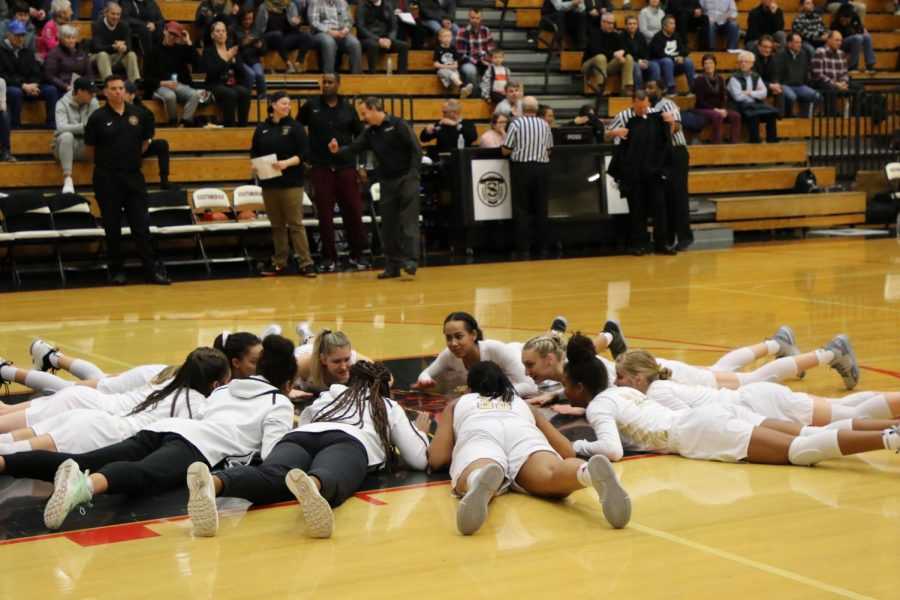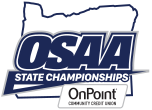
In a game like basketball, where there are multiple shifts in momentum, moving on from one play to the next quickly can make all the difference between an important win or an agonizing defeat.
That’s why whenever players on the Southridge girls team have a bad game, the first thing they often hear is PRP, or play-recover-play.
The concept of play-recover-play was brought to the program by assistant coach Mustapha Hoff, who first read about the theory in an old newspaper article on a long-distance flight during his playing days.
Play-recover-play does not focus on individual mistakes. Instead, it focuses on the in-game recovery aspect of basketball. It is the ability that players have to wipe a mistake or missed call from their memory while quickly focusing in on the next play.
“When I think of play-recover-play, I think of my teammates being able to pick each other up when something happens and being able to get back and help each other out,” junior Kailea Boerste said. “Obviously you’re going to mess up in basketball and that’s the point. Messing up makes you better. It’s not like you want to mess up, but you need to be able to recover from those mistakes so that you can be better.”
Added Southridge head coach Michael Bergmann: “It means you don’t keep doing the same thing over, but you also don’t dwell on the fact that you made a mistake. So you make an adjustment in a positive way and then you play again.”
Bergmann can remember Hoff bringing up the concept for as long as they have been coaching together. The most prominent examples came down in Arizona a few years ago when the Skyhawks lost all four games of the Nike Tournament of Champions, including three blowout defeats.
However, the idea of play-recover-play has been a part of the program for much longer than that. Most of the players on the team today learned the concept while in the Junior Metro program as early as sixth and seventh grade.
“It’s a habit that is built within our team,” Hoff said. “And the good thing about it is we don’t have to say it. They say it to their teammates, especially during game situations, which is very important.”
And while play-recover-play is often thought of as an in-game, short-term adjustment, it can also be used on a larger scale.
For example, Bergmann cites the Skyhawks early loss to Tigard, their first to an in-state opponent in over a year, as an example of a long-term play-recover-play.
“You could say that we lost a long streak, that we lost to a team that if we were playing better, we probably could beat," Bergmann said, "but the question is, 'Do we recover when we come to practice and start focusing on things we do right?'"
Some of the more pressing short-term examples of the concept once again came down in Phoenix, where the Skyhawks took on some of the best teams in the country in December.
In their first game of the tournament, where they faced foul-trouble and early nerves against national power Archbishop Mitty (Calif.), both players and coaches were telling each other to play, recover, and play.
“It was really difficult because the teams were at such a high level that we weren’t used to in Metro, and we were pushed outside our comfort zones,” Boerste said about the Arizona tournament.
What might be the most psychologically beneficial aspect of play-recover-play comes from how it liberates the player's minds during the game. When players are told to play-recover-play, they know that their coaches and teammates have seen their mistake and are not too worried about it.
“You can see them sometimes, when a play happened and I say play-recover-play, they stand right back up to go for the next play,” Hoff said.
As the season goes on, there are sure to be many more challenges for the defending state champions. So if you focus on the Skyhawk bench during a bad game when things aren’t going their way, you will be sure to hear both the coaches and players encouraging the team with three simple words: play-recover-play.
Kyle Pinnell is a junior at Southridge High School

















